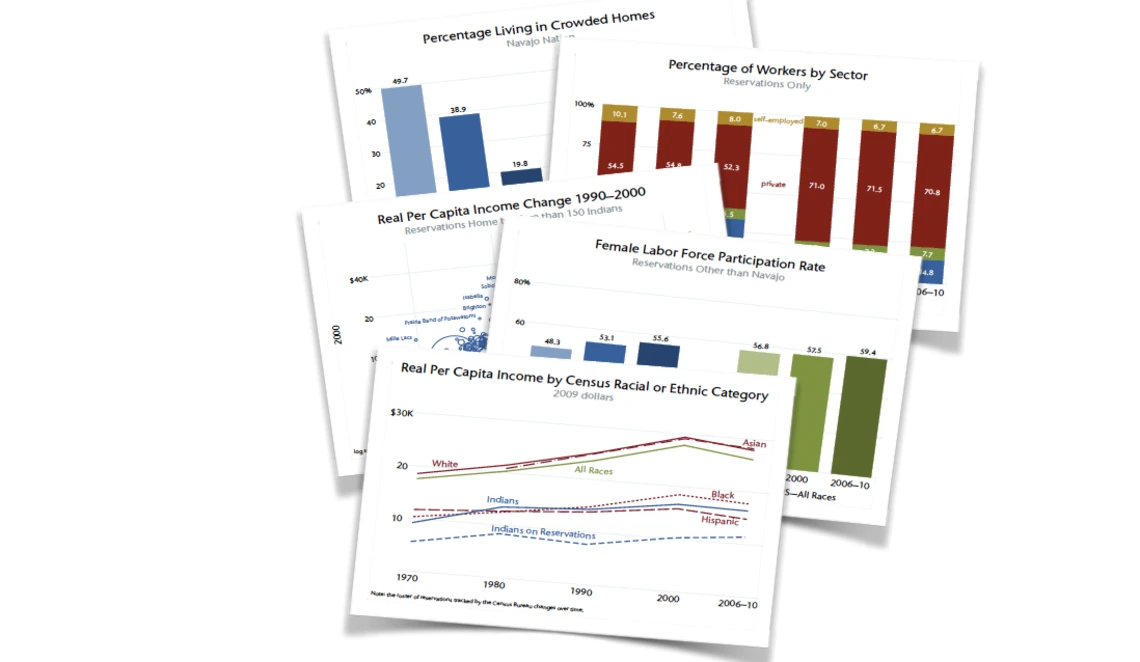- By 2010, the vast majority of American Indian tribes could be considered gaming tribes. We estimate that more than 92% of all American Indians on reservations lived on reservations with gaming operations. Gaming operations have an impact on almost every American Indian reservation given the existence of revenue-sharing funds and intertribal gaming-device leasing, which transfer gaming revenues to non-gaming tribes.
- Significant gains were made in Real Per Capita Income on American Indian reservations from 1990 to 2000. In the ten years following, however, income gains were much smaller.
- The Median Household Income of American Indians living on reservations increased during the 1990s, but those gains did not continue into the 2000s. Nor did the large reductions in Family and Child Poverty made during the 1990s. However, neither the increases in income nor the reductions in poverty after 1990 have eroded on reservations.
- The Unemployment rate for American Indians residing on reservations fell in the 1990s but remained constant in the 2000s. The Labor Force Participation rate remained steady over time, but Indian Female Labor Force Participation increased steadily over that period.
- Improvements in infrastructure have continued on reservations over the past 20 years. Crowded Homes and Homes Lacking Complete Plumbing have dropped significantly in number.
- Education levels have increased over time on reservations, with more College Graduates since the 1990s, although the Indian population is far from parity with the rest of the United States on this measure.
Additional Information
Randall K.Q. Akee & Jonathan B. Taylor. Social and Economic Change on American Indian Reservations: A Databook of the US Censuses and the American Community Survey 1990–2010. May 15, 2014. The Taylor Policy Group, Inc. Sarasota, FL. ISBN: 978-0-9903880-0-5.




